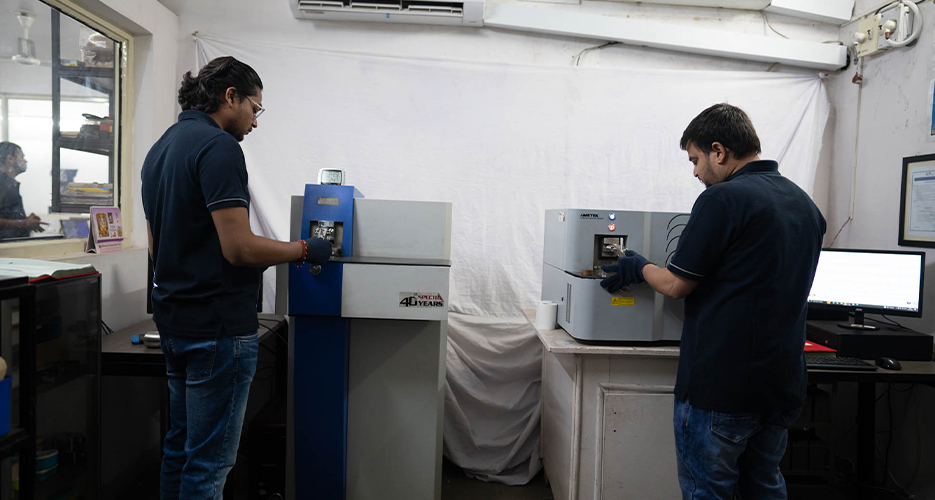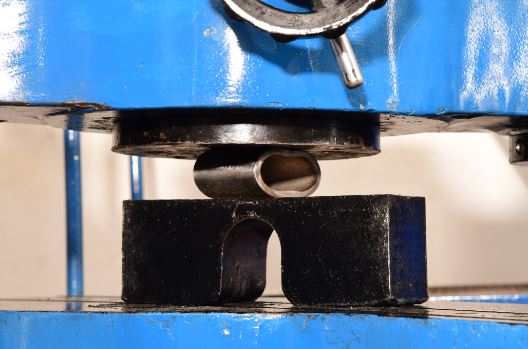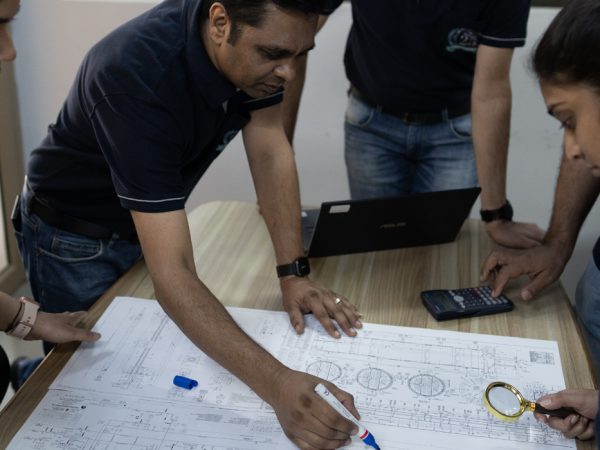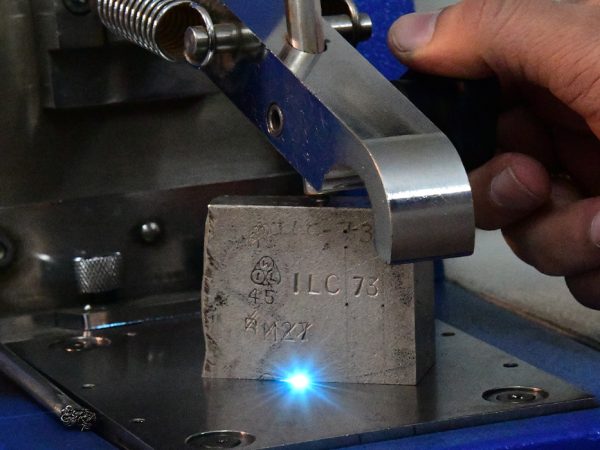In today’s fast-evolving industrial world, Material Testing plays a vital role in determining the quality, durability, and reliability of materials used across sectors like automotive, aerospace, construction, manufacturing, and energy. Every product we use — from aircraft parts to construction steel — depends on the integrity of its materials. To ensure that integrity, advanced Material Testing services are essential.
TCR Advanced Pvt. Ltd. stands among the most trusted names in India, offering a complete range of Material Testing solutions. As an experienced Material Testing manufacturer and service provider, the company specializes in both destructive and nondestructive testing methods, ensuring materials meet international standards and industry specifications.
What is Material Testing?
Material Testing is the process of examining and evaluating materials — such as metals, alloys, polymers, and composites — to determine their mechanical, chemical, and physical properties. These tests help engineers and manufacturers ensure that materials can perform effectively under specific conditions, such as stress, heat, or corrosion.
It’s not just about checking composition; it’s about understanding how a material behaves when subjected to real-world conditions. By performing Tensile Testing, Hardness Testing, Corrosion Testing, and Nondestructive Testing (NDT), experts can predict the lifespan, performance, and safety of a product before it’s put into use.

Why Material Testing is Important
The importance of Material Testing goes far beyond laboratory analysis. It ensures that products are safe, efficient, and compliant with required standards. Industries rely on testing to prevent failures, reduce costs, and maintain consistent quality.
Some of the key reasons include:
- Quality Assurance: Ensures raw materials meet design specifications.
- Product Safety: Prevents potential material failures that could cause accidents.
- Regulatory Compliance: Meets ISO, ASTM, and other international standards.
- Performance Optimization: Helps in material selection for better strength and durability.
- Cost Efficiency: Reduces waste by identifying defects early in the process.
Whether it’s Mechanical Testing for structural materials or Chemical Testing for alloys, every test contributes to building safer and more reliable products.
Different Types of Material Testing
Material testing encompasses various specialized techniques. Below are the main categories offered by TCR Advanced, covering all aspects from mechanical properties to microscopic analysis.
1. Tensile Testing
Tensile Testing is one of the most common methods in Mechanical Testing. It measures a material’s ability to withstand tension — how much force it can handle before breaking. This test determines properties such as ultimate tensile strength, yield strength, and elongation.
During Tensile Testing, a specimen is pulled apart until it fractures. The data collected helps engineers understand how a material will behave under load or stress. It’s crucial in industries like automotive, construction, and manufacturing, where strength and flexibility matter most.
By performing accurate Tensile Testing, TCR Advanced ensures materials meet required mechanical performance standards, guaranteeing product safety and consistency.
2. Metallurgical Testing
Metallurgical Testing focuses on understanding the structure and properties of metals and alloys. It involves detailed analysis of the material’s microstructure, grain size, inclusions, and phases to ensure it meets performance expectations.
Through advanced microscopy techniques, metallurgical experts can identify the root cause of material failure, manufacturing defects, or inconsistencies in heat treatment. These insights help improve production processes and prevent recurring issues.
TCR Advanced’s Metallurgical Testing services provide precise insights into material composition and behavior, ensuring that metals are reliable for critical applications like turbines, pipelines, and heavy machinery.
3. Chemical Testing
Chemical Testing determines the exact elemental composition of materials. It’s a crucial step in identifying whether the raw material used in production meets required specifications. For example, even a slight variation in chemical composition can affect the mechanical strength and corrosion resistance of a component.
At TCR Advanced, chemical analysis is performed using modern techniques such as Optical Emission Spectroscopy (OES), Wet Chemical Analysis, and Combustion Analysis. These tests provide accurate results for elements like carbon, sulfur, manganese, nickel, and chromium.
With precise Chemical Testing, industries can ensure that materials are free from impurities and conform to international standards like ASTM and ISO.
4. Mechanical Testing
Mechanical Testing examines how a material behaves under different forces and loads — tension, compression, bending, or impact. These tests provide crucial data for engineers designing parts that need to withstand extreme stress or fatigue.
The most common mechanical tests include:
- Tensile Testing – Measures elongation and breaking strength.
- Impact Testing – Evaluates toughness and resistance to sudden forces.
- Fatigue Testing – Determines performance under repeated stress.
- Bend Testing – Checks ductility and flexibility.
- Hardness Testing – Evaluates surface resistance to deformation.
By offering complete Mechanical Testing solutions, TCR Advanced helps industries select materials that meet both strength and performance requirements.
5. Hardness Testing
Hardness Testing is a vital part of Material Testing, used to measure how resistant a material’s surface is to indentation or scratching. It helps determine the strength and wear resistance of metals and alloys.
Common hardness testing methods include:
- Brinell Hardness Test (BHN)
- Rockwell Hardness Test (HRB, HRC)
- Vickers Hardness Test (VHN)
Each method provides different levels of precision and is selected based on the type and thickness of the material. TCR Advanced uses all major hardness testing techniques to ensure accuracy and reliability for industrial applications.
6. Corrosion Testing
Corrosion is one of the most common reasons for material degradation, especially in industries dealing with moisture, chemicals, or marine environments. Corrosion Testing helps determine how materials perform in corrosive conditions and their expected lifespan.
Methods such as Salt Spray Testing, Humidity Testing, and Electrochemical Analysis simulate real-world environments to measure corrosion resistance. By performing Corrosion Testing, TCR Advanced helps clients choose materials with better coatings, treatments, or compositions that resist environmental damage.
This type of testing is especially important in oil & gas, marine, and power generation industries.
7. Metallography Services
Metallography Services involve studying the microscopic structure of metals to understand their composition, manufacturing process, and potential defects. The procedure includes sample preparation, polishing, etching, and microscopic examination under optical or electron microscopes.
These tests reveal grain size, phase distribution, and inclusion content — all of which affect a material’s mechanical properties and performance. TCR Advanced’s Metallography Services provide clients with detailed images and reports, helping them analyze production quality, heat-treatment effectiveness, and failure causes.
Metallography complements Metallurgical Testing, ensuring complete insight into material quality from macro to micro level.
8. Nondestructive Testing (NDT)
Nondestructive Testing (NDT) allows materials and components to be tested without causing any damage. This method is ideal for inspecting finished products, welds, and critical components that cannot be destroyed for analysis.
Popular NDT techniques include:
- Ultrasonic Testing (UT) – Uses sound waves to detect internal flaws.
- Radiographic Testing (RT) – Uses X-rays or gamma rays for internal imaging.
- Magnetic Particle Testing (MT) – Detects surface and near-surface cracks in ferromagnetic materials.
- Dye Penetrant Testing (PT) – Identifies surface defects in non-porous materials.
- Eddy Current Testing (ECT) – Checks for surface cracks and conductivity variations.
TCR Advanced’s Nondestructive Testing (NDT) services are performed by skilled professionals using certified equipment, ensuring safe and precise results for various industries like aerospace, power, and manufacturing.
Applications of Material Testing
Material Testing has applications in almost every industrial sector. Here are some key examples:
1. Construction Industry
In the construction industry, Material Testing ensures that every structure stands strong and durable for decades. Tests such as Tensile Testing, Hardness Testing, and Chemical Testing are used to evaluate the quality of steel, concrete, and reinforcing alloys. These tests confirm that materials meet load-bearing, safety, and durability standards set by international codes. TCR Advanced provides comprehensive testing solutions that help construction companies avoid material failures, ensure compliance, and build safe, long-lasting infrastructures like bridges, buildings, and industrial facilities.
2. Automotive Industry
The automotive industry relies heavily on Material Testing to ensure that vehicles perform safely under various conditions. Components like engine parts, chassis, suspension systems, and fasteners undergo Tensile, Fatigue, and Impact Testing to measure their strength and reliability. Chemical and Metallurgical Testing help identify impurities and verify heat treatment processes. With TCR Advanced’s advanced testing facilities, manufacturers can validate material integrity, reduce the risk of breakdowns, and improve overall vehicle performance, safety, and efficiency.
3. Aerospace Industry
In aerospace, where safety is non-negotiable, Material Testing plays a critical role in evaluating lightweight alloys, composites, and high-temperature materials. Every part—from turbine blades to fuselage panels—undergoes Mechanical, Corrosion, and Nondestructive Testing (NDT) to ensure structural reliability. These tests confirm that components can withstand extreme temperature fluctuations, pressure, and vibration. TCR Advanced’s expertise helps aerospace manufacturers meet global quality standards, minimize failure risks, and guarantee that aircraft components deliver long-term performance and safety in demanding environments.
4. Oil & Gas Industry
The Oil & Gas sector operates in some of the harshest environments, where materials face continuous stress, corrosion, and pressure. Through Nondestructive Testing (NDT), Corrosion Testing, and Metallurgical Analysis, TCR Advanced helps detect cracks, pitting, and material degradation in pipelines, storage tanks, and drilling components. Regular Material Testing ensures compliance with industry standards, prevents costly shutdowns, and enhances operational safety. By providing accurate and timely test results, TCR Advanced supports the reliability and longevity of critical oil and gas infrastructure.
5. Energy & Power Industry
In the energy industry, Material Testing ensures that turbines, generators, pressure vessels, and transmission components can endure high temperatures and operational loads. Tests such as Tensile, Impact, Hardness, and NDT help verify material stability and performance over time. Corrosion resistance is also tested to ensure the durability of components used in thermal, nuclear, and renewable power plants. TCR Advanced’s comprehensive testing services enable energy companies to maintain efficiency, reduce maintenance downtime, and achieve uninterrupted, safe power generation.
By offering Mechanical Testing, Metallurgical Testing, Chemical Testing, and NDT, TCR Advanced ensures its clients achieve optimum performance and safety in all applications.
How TCR Advanced Ensures Accurate Results
TCR Advanced Pvt. Ltd. is known for its state-of-the-art laboratories, advanced testing instruments, and a team of highly skilled engineers and metallurgists. The company follows globally recognized standards such as ASTM, ISO, and NACE to deliver reliable test results.
Key strengths of TCR Advanced include:
- Comprehensive Testing Range: From Tensile Testing to Corrosion Testing, all under one roof.
- Modern Infrastructure: Equipped with the latest instruments and calibration systems.
- Experienced Professionals: Qualified metallurgists and technicians ensuring precision.
- Quality Assurance: Follows strict internal QA protocols for every test.
- Customized Solutions: Tailored testing services for client-specific needs.
Their commitment to accuracy and transparency has made TCR Advanced a trusted partner for leading industries worldwide.
Conclusion
In a world driven by innovation, safety, and reliability, Material Testing is the foundation that supports product excellence. Whether it’s Mechanical Testing for durability, Chemical Testing for purity, or Nondestructive Testing (NDT) for safety, every test plays a crucial role in ensuring that materials perform as intended.
TCR Advanced Engineering Pvt. Ltd. stands at the forefront of Material Testing in India, offering end-to-end services that combine technical expertise with cutting-edge technology. With their advanced laboratories and skilled team, they help industries achieve higher performance, longer product life, and global quality standards.
If you are looking for trusted, precise, and reliable Material Testing services, connect with TCR Advanced — your partner in quality, safety, and innovation.
Frequently Asked Questions (FAQ)
1. What is Material Testing and why is it important?
Material Testing helps determine the strength, durability, and composition of materials. It ensures safety, quality, and compliance with standards before materials are used in manufacturing or construction. Tests like Tensile, Chemical, and NDT help prevent failures and improve reliability.
2. What are the main types of Material Testing?
Key types include Mechanical Testing, Metallurgical Testing, Chemical Testing, Hardness Testing, Corrosion Testing, and Nondestructive Testing (NDT). Each method provides insights into different material properties and performance under stress.
3. What does Tensile Testing check?
Tensile Testing measures a material’s strength and elasticity when stretched. It helps determine yield strength, elongation, and breaking point — ensuring materials can handle stress and load safely.
4. What is the purpose of Metallurgical Testing?
Metallurgical Testing examines the structure and properties of metals to detect defects, analyze grain size, and confirm heat treatment quality. It helps maintain consistency and performance in metal components.
5. What is Chemical Testing used for?
Chemical Testing identifies a material’s elemental composition. It ensures materials meet specifications, are free from impurities, and comply with standards like ASTM and ISO.
6. What does Hardness Testing measure?
Hardness Testing evaluates a material’s resistance to indentation or wear. It indicates strength and durability — commonly done using Rockwell, Brinell, or Vickers methods.
7. Why is Corrosion Testing important?
Corrosion Testing predicts how materials will perform in humid, salty, or chemical environments. It helps industries select materials that resist rust and environmental degradation.
8. What is Nondestructive Testing (NDT)?
NDT inspects materials without causing damage. Techniques like Ultrasonic, Radiographic, and Magnetic Particle Testing detect cracks, voids, or surface flaws — ideal for critical components.
9. How does Material Testing prevent failures?
It detects defects, weaknesses, or chemical inconsistencies before production. By catching issues early, Material Testing reduces product failure risks, downtime, and safety hazards.
10. Why choose TCR Advanced for Material Testing?
TCR Advanced offers complete Material Testing solutions under one roof — from Tensile to NDT. With certified labs, modern equipment, and expert engineers, they deliver accurate, reliable, and timely test results for every industry.







